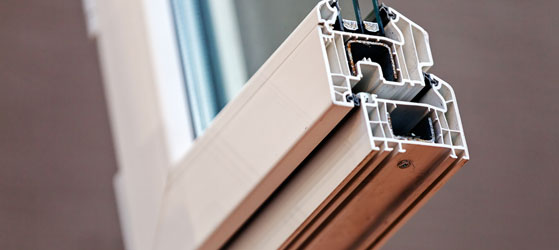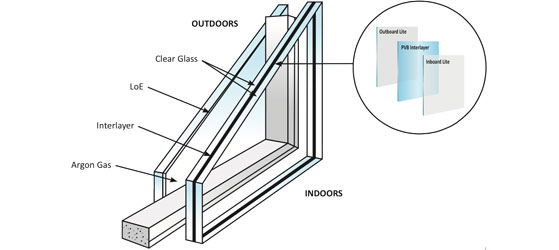Window Sweating
Why Do Windows Sweat?
Window sweating (water literally running down your windows and moistening your window frames & sills) is largely due to one simple, but annoying reason…excess humidity. Both newer homes and older homes can experience window sweating, with newer (and more air-tight) homes seeing the worst cases of this. Newer homes are built out of a variety of materials like cement and wood, which in reality, require 12-18 months to completely dry, but with eager new homebuyers that prefer to move in right away, humidity levels can climb higher than if the home was completely dried out. Older homes tend to have little nooks and crannies that allow minimal air ventilation, which is good in some respects, but they are not overly energy efficient. With increased humidity comes windows that drip sweat, so addressing what and why there is too much humidity in a specific room, is a top priority. Mildew and mold can grow in and around windows that are prone to sweating, which is unhealthy to breathe in, as some mold spores are air born.
How to Identify It
 Spotting window sweating can be identified by water collecting and running down the interior window or in-between the window glass panes. Windows (old and new) adopt the lowest temperature in the interior surfaces of your home. You may notice that walls do not sweat, and this is because walls tend to be warmer. A possibility to consider when it comes to excess moisture on your windows is, you could be experiencing ground moisture coming up through your homes concrete slab, which can be easily ascertained by a building inspector or a home inspector. These inspectors can also find other underlying issues through your homes construction that could be a factor. If you are not sure how to move forward on having your windows checked by a professional, our friendly staff is available to assist you in window inspections and can offer great advice, make suggestions on how to improve the performance of your existing windows or help with choosing new windows to completely replace the old ones. Replacing windows with new ones provides you with the opportunity to critique your ‘style’ and do a windows makeover!
Spotting window sweating can be identified by water collecting and running down the interior window or in-between the window glass panes. Windows (old and new) adopt the lowest temperature in the interior surfaces of your home. You may notice that walls do not sweat, and this is because walls tend to be warmer. A possibility to consider when it comes to excess moisture on your windows is, you could be experiencing ground moisture coming up through your homes concrete slab, which can be easily ascertained by a building inspector or a home inspector. These inspectors can also find other underlying issues through your homes construction that could be a factor. If you are not sure how to move forward on having your windows checked by a professional, our friendly staff is available to assist you in window inspections and can offer great advice, make suggestions on how to improve the performance of your existing windows or help with choosing new windows to completely replace the old ones. Replacing windows with new ones provides you with the opportunity to critique your ‘style’ and do a windows makeover!
What to Do About It
 Humidity in your home comes from a variety of sources, some that you can control, and some that you cannot. Many everyday activities in your home (cooking, showering, using gas fireplaces & dryers) are not being properly ventilated if you are seeing window sweating. When exhaust fans are not being used during steamy showers and steam derived from cooking, this now warmed up air expands and holds moisture until it cools down, and heads straight for windows, soaking them. Gas fireplaces and dryers need to be properly ventilated to the outside, and any damaged caulking or openings around windows should be repaired or replaced, as this can also force window sweating. An overlooked tip: houseplants (and lots of them) can CAUSE window leaking, so be sure to move your plants away from proximity to your windows as a kind of test (if the windows stop leaking, then you have potentially solved the problem, or at least helped in the amount of water forming on your windows). Lowering your thermostat is another proactive measure that can be taken to ease the water collection found on your windows.
Humidity in your home comes from a variety of sources, some that you can control, and some that you cannot. Many everyday activities in your home (cooking, showering, using gas fireplaces & dryers) are not being properly ventilated if you are seeing window sweating. When exhaust fans are not being used during steamy showers and steam derived from cooking, this now warmed up air expands and holds moisture until it cools down, and heads straight for windows, soaking them. Gas fireplaces and dryers need to be properly ventilated to the outside, and any damaged caulking or openings around windows should be repaired or replaced, as this can also force window sweating. An overlooked tip: houseplants (and lots of them) can CAUSE window leaking, so be sure to move your plants away from proximity to your windows as a kind of test (if the windows stop leaking, then you have potentially solved the problem, or at least helped in the amount of water forming on your windows). Lowering your thermostat is another proactive measure that can be taken to ease the water collection found on your windows.
How to Prevent It
During colder months, when window sweating usually occurs, using a dehumidifier will help out greatly with lowering the humidity levels in rooms. If you are already taking precautions against humidity and are properly venting your home, then you should take a closer look at the current state of your windows. Older windows tend to become drafty and worn out, which could be the direct result of additional humidity, so giving your current windows a ‘makeover’ with assistance from our friendly window specialists, will possible help regain some of that lost performance. Even using storm windows throughout the colder months will have a good impact on this problem. New windows should not be ruled completely out however, as they are engineered and manufactured to address condensation and window leaking issues, as well as a tighter fitting window seals & framing to keep out the cold temperatures in the winter or let the warm air in during summer.